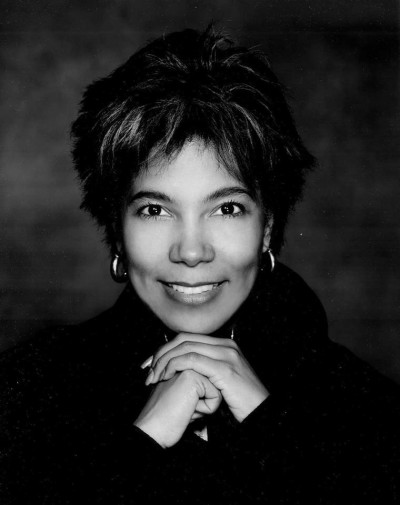Claudia Alexander (Claudia Joan Alexander)

Claudia Alexander was born in Canada but raised in Santa Clara, California by her mother, Gaynelle, and father, Harold. She had two siblings: Suzanne and David. Claudia Alexander wanted to be a journalist but her parents—who were paying for her education—wanted her to become an engineer. After a summer job at the Ames Research Center, she became interested in planetary science. Although she had been hired to work in the engineering section, she would sneak off to the science section where she found that not only was she good at the work, but that it was easier and more enjoyable to her than she had expected. In 1983 Alexander received a Bachelor’s degree from the University of California, Berkeley in geophysics, which she thought would be a good background for a planetary scientist. Claudia Alexander earned her Master’s from the University of California, Los Angeles in geophysics and space physics in 1985. Her masters’ thesis used Pioneer Venus Orbiter data to study solar cycle variations in extreme ultraviolet radiation of the Venus ionosphere and its interaction with the solar wind. She earned her Ph.D. in the physics of space plasma from the University of Michigan in 1993—where she was named “Woman of the Year.” Alexander worked at the United States Geological Survey studying plate tectonics and the Ames Research Center observing Jovian moons, before moving to NASA’s Jet Propulsion Laboratory in 1986. She worked as science coordinator for the plasma wave instrument aboard the Galileo spacecraft before becoming the project manager of the Galileo mission. She was the final project manager for the mission, and oversaw the spacecraft’s dive into Jupiter’s atmosphere at the mission’s conclusion in 2003.
Alexander worked as a researcher on diverse topics, including: the evolution and interior physics of comets, Jupiter and its moons, magnetospheres, plate tectonics, space plasma, the discontinuities and expansion of solar wind, and the planet Venus. She wrote or co-authored fourteen papers. She was also a strong advocate for women and minorities in the STEM fields. At the time of her death, Alexander had been serving as project manager and scientist of NASA’s role in Rosetta, the European Space Agency mission to study comet 67P/Churyumov-Gerasimenko. In addition to her scientific work, Alexander wrote science fiction and children’s books and enjoyed horseback riding. Claudia Alexander died on July 11, 2015 in Arcadia, California of breast cancer.
Born
- May, 30, 1959
- Canada
- Vancouver, British Columbia
Died
- July, 11, 2015
- USA
- Arcadia, California
Cause of Death
- breast cancer
Cemetery
- Oak Hill Memorial Park
- San Jose, California
- USA


